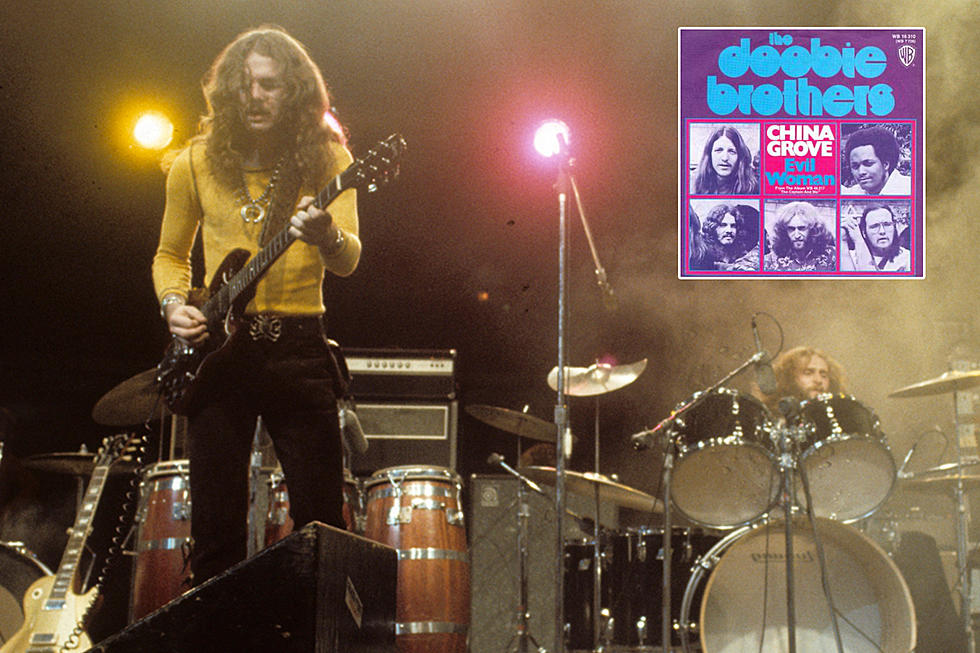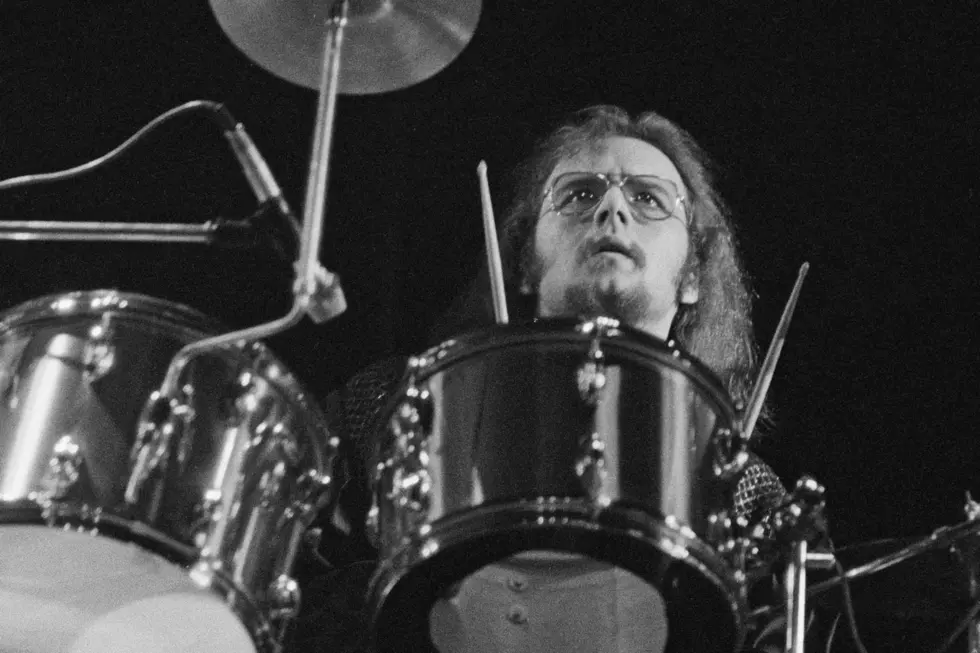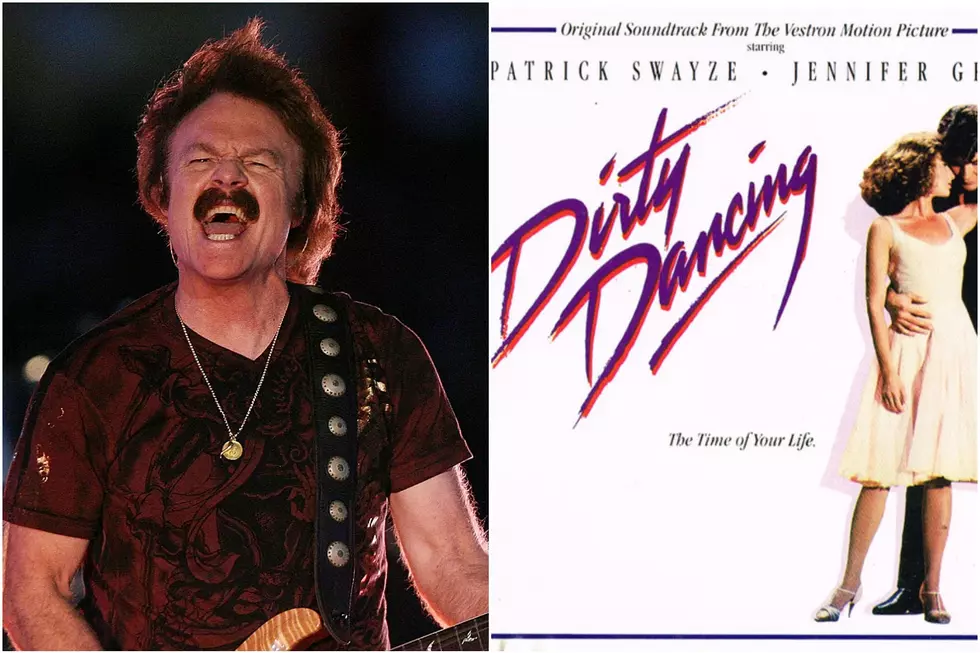
When the Doobie Brothers Hit the Big Time With ‘Minute by Minute’
The early '70s saw the Doobie Brothers breaking through to the mainstream with a series of hit albums. By the middle of the decade, however, the band hit a turbulent rough patch, with co-founder Tom Johnston exiting the lineup due to health issues and burnout. They continued as an increasingly different-sounding group after adding Michael McDonald to flesh out their sound in Johnston's absence.
By the time the Doobies released their seventh studio album, 1977's Livin' on the Fault Line, they'd used McDonald's distinctive vocals and gift for complex chord changes to move away from the guitar-oriented rock of their earlier albums, incorporating sophisticated overtones of jazz, soul and R&B. The new sound was radio-friendly, but it put the group at an artistic crossroads, and the somewhat muted commercial reception that greeted Fault Line weighed on the band members as they returned to the studio to record the follow-up, Minute by Minute.
The rest, as Doobies fans know, is history: Released Dec. 1, 1978, Minute by Minute went on to become the band's biggest album, a Grammy-winning chart-topper that validated their decision to open up their sound and take a chance on less stereotypically "rock 'n' roll" stuff. In a pair of exclusive interviews with UCR, Doobie Brothers co-founder Patrick Simmons and McDonald looked back on the album's difficult birth, massive success and continuing legacy.
"I don’t know if we thought we had anything to prove as much we were just – it’s the same old routine when you go in the studio, you know. You’re just trying to do your best," Simmons recalled when asked about the band's mindset heading into Minute by Minute. "As far as my feeling has always been, you always have high hopes for any project you do, but I never want it too bad, because the more you want it, the further away it gets. It’s kind of a little philosophy of life for me, I guess. If you want something too badly, it’s always a little out of reach."
McDonald agreed: "We were desperate; I don’t know if we had something to prove as much as we didn’t want to go up in smoke. Livin’ on the Fault Line was kind of a commercial disappointment for us, although it seemed to have a certain buzz with the smaller fan base we had. It was surprising, really, that Minute by Minute did as well as it did, and as quickly as it did."
Before it could hit the charts, however, the record had to escape the studio – no mean feat, considering that the band struggled to get something on tape that they felt served as a suitable response to Livin' on the Fault Line and the hit albums that came before it.
"As we progressed with it, I had less notions of it fulfilling any kind of expectations I’d hoped for," Simmons continued. "As we were doing it, I think we all felt like we’d missed it somehow. We didn’t feel like we’d captured the record we were working towards. It wasn’t as good as we wanted it to be. Not that it was a bad album or anything, but I really loved Livin’ on the Fault Line. I think we all did. When we went to do Minute by Minute, we thought if we could just make it as good as Livin’ on the Fault Line, that would be great, but as we went along, I think we felt it might be a little too pop. Not as serious a record, and the tracks weren’t as solid, necessarily. As we got toward the end, we thought the tracks were solid, but we weren’t sure about the record overall."
Watch the Doobie Brothers Perform 'What a Fool Believes'
Outsiders, McDonald said, were no help either. "I remember playing it for a friend of mine whose musical judgment I trusted, and I thought he might have a better read on the tracks, because I felt like it might be all over the place. Although we enjoyed making the music, I wasn’t sure if it added up to a really commercial album. I said, 'I mean, all the tunes have merit, but I don’t know if they hang together as a record,' and he looked at me and he said, 'This is a piece of shit,'" laughed McDonald. "From what I understand, one of the VPs at Warner Bros. at the time had the same reaction. They played the album during one of their Monday meetings, and he said, 'This is terrible. These guys are over.' It just goes to show you that with music, you’re like the weatherman. You can’t always call it the right way. Thankfully for us, the music captured the public’s imagination in a way we didn’t expect."
Minute by Minute broadened the group's audience in a big way, but the record also found the Doobies focusing even more heavily on the smoother, R&B-influenced strain that had emerged in the band's music when McDonald joined the lineup. It proved a controversial evolution – for the fans as well as some of the Brothers.
"I think some members were conscious that the rockin’ edge, so to speak, was not as prevalent, and it colored their attitudes a little bit," Simmons admitted. "As far as I was concerned, I liked what was happening. I liked what had happened before, and I really liked where things were going. I liked Mike’s tunes, I liked his sensibility musically, and I felt comfortable with the music in general. But there were other people in the band that sort of missed that edge a little bit, and it was starting to show here and there – attitudes about things. Mike was a little more specific about his ideas and parts for people to play, and there was some resentment there occasionally. 'Well, that’s not what I hear' – and Mike would say, 'Well, it’s my song.'"
McDonald conceded the point. "That’s just a classic case of ... it was me, not them. Over the years I’ve learned that I get a certain thing in my head, and it becomes my worst enemy at that point. It’s the demo-love thing, and all of that is really for no good reason in the end, anyway. It’s always been too much of a personal thing for me; I think that’s probably the best way to describe it. I’m always like the guy who wants to date the pretty girl so bad, and when he finally gets the chance, he blows it because he spends too much time worrying about it."
Both Simmons and McDonald went out of their way to single out producer Ted Templeman for praise, with McDonald telling UCR that the band "recorded a lot of the songs so many times that we kind of lost perspective." One particularly arduous example was "What a Fool Believes," the McDonald/Kenny Loggins co-write that ended up becoming the album's biggest hit: Not only was Templeman instrumental in, as McDonald put it, "keeping track of where the good takes were," he even ended up playing drums on the song.
"We had done several takes that in my opinion were all valid and good," Simmons mused. "I think here was some discomfort from Mike with the song in general. I think he had a vision that I’m not sure he was really able to get fully focused for himself, and it’s hard to be in the middle of something like that. It’s also kind of a complicated song. As simple as the track is, there’s some subtle complexity, a lot of funny changes. ... I don’t think he saw the players doing the job he wanted them to do. By the time that was over, I think he saw that he could probably do better by just going and hiring studio guys to make it happen. I know Mike, and he’s a perfectionist. I’m not sure that in those days, anyone could make it sound the way he envisioned it."
Watch the Doobie Brothers Perform 'Minute by Minute'
Not much has changed, McDonald admitted. "That’s true. I’m still that way, unfortunately. Being in the studio, for me, can be a miserable experience. I can really psych myself out. Over the years, I’ve tried to move beyond that. When there isn’t really a significance attached to recording at the time, I can enjoy myself tremendously, but the minute it becomes official that it’s for a record to be released, my whole perspective on it gets very dark. I wish it wasn’t that way, but I’ve always been that way, and I’ve tortured a lot of nice people."
All that torture paid off in the form of a No. 1 album and three Top 40 singles: "Dependin' on You" (No. 25), "Minute by Minute" (No. 14) and the chart-topping smash "What a Fool Believes." Success comes with a price, however, and for the Doobies, the rush of tour dates and promotional appearances that followed ended up wiping out an already exhausted band. Although they'd manage to soldier on for one more studio LP (1980's One Step Closer) and a farewell tour, they just couldn't continue maintaining the grueling pace they'd set throughout the '70s.
"I think the thing that really caused the Doobie Brothers to come apart, for lack of a better term, was just the grind," nodded Simmons. "Just too much traveling, too much gigging, lifestyle overload. That’s really where that went. By the time that happened, I think Mike saw that he could make things happen for himself as a solo artist, and that was more attractive to him in the end – being the commander of the ship and calling all the shots."
That's what McDonald did, beginning a solo career that started with 1982's If That's What It Takes and continues today, and after a few years of exploring their own solo ventures, the Doobies regrouped in the late '80s – first for a well-received reunion tour that enlisted a huge number of former members, and then on a more permanent basis for a run of studio records that took the band back to its boogie-rock roots.
But if some fans saw the Doobies' retreat from the smoothly soulful pop of the McDonald era as a repudiation of those commercially successful records, Simmons insists nothing could be further from the truth; in fact, he argues, it's all part of the story of a band that's been evolving all along.
"I don’t think that was anything that ever meant anything to me personally," he shrugged when asked about the fans who took issue with McDonald's contributions to the Doobie Brothers. "We had a band with Tommy until ‘75 or so, and then he left, so we had to figure out whether to throw in the towel. We had a contract, we had tour dates, and we decided to see what happened – and when Mike came in, we attracted some new fans, and that became our base.
"It was satisfying. It was different, but it’s different now, too," continued Simmons. "At the point Mike came into the band, it was already different, and by the time we reached ‘Minute by Minute,’ it wasn’t the same band either. Things just kept evolving, and when Mike left and we got back together, it kind of went back to the original band for a short time, and then that changed again. It’s kind of cool for me, because I’ve always been there. I don’t always have to play with the same band."
Doobie Brothers Albums Ranked
More From Ultimate Classic Rock








